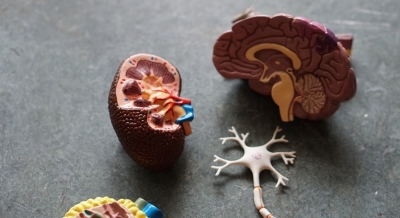New Delhi: A 48-year-old woman suffered kidney failure after consuming the raw gallbladder of a fish to cure her diabetes as advised by a local quack, said doctors here who advised not to eat it.
Seta Devi, 48, a resident of Ranchi, was admitted at Sir Ganga Ram Hospital with vomiting and severe kidney injury after eating the raw gallbladder of a locally available “rohu” (Labeo rohita).
She underwent two sessions of hemodialysis, and her kidney biopsy revealed severe inflammation. She was started on high dose steroids with supportive treatment.
By the seventh day, her kidney function started to recover and after two weeks, she was discharged with normal kidney function, the doctors said.
Raw fish gall bladder consumption is a common practice in certain regions of Asia including India, particularly eastern and southern India. It is traditionally believed to cure diabetes mellitus, bronchial asthma, arthritis and visual disturbances amongst others.
The most commonly implicated fish species are the Rohu and the Catla (Catla catla), which are both commonly consumed in many parts of the country.
However, these fish produce bile, which contains a toxin called cyprinol — shown to cause kidney damage in humans. Symptoms of fish bile-associated kidney injury can include abdominal pain, vomiting, and decreased urine output. In severe cases, the condition can lead to kidney failure and even death.
“It is important to note that the risk of kidney injury is not limited to these two species of fish and can also occur with the consumption of gallbladder from other types of fish. Therefore, I recommend avoiding the consumption of raw fish gallbladder altogether to prevent potential health risks. These fish naturally produce high levels of bile in their digestive systems, which can be harmful to humans when ingested in large quantities,” said Dr. (Prof.) A.K. Bhalla, Chairman, Department of Nephrology, at the Hospital in a statement.
“To prevent fish bile-associated kidney injury, we recommend avoiding consuming fish that are known to have high levels of bile. It is also important to ensure that fish is properly prepared and cooked thoroughly, as this can help to reduce the levels of toxins present in the fish,” added Vaibhav Tiwari, Consultant, Department of Nephrology, from the hospital.
In addition to these precautions, individuals who experience symptoms of fish bile-associated kidney injury should seek medical attention immediately. Treatment may involve supportive care, such as hydration and pain management, as well as measures to protect the kidneys from further damage, the doctors advised.
–IANS


Comments are closed.